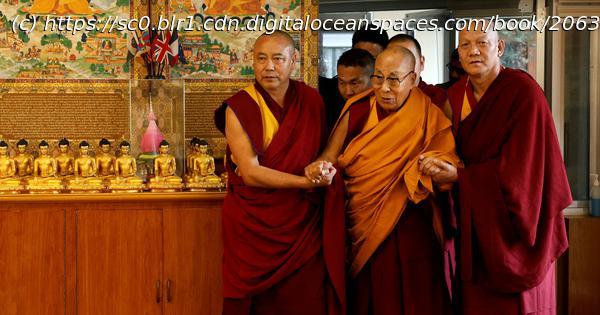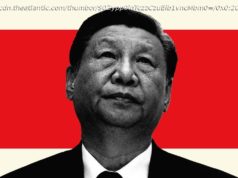The spiritual leader, who escaped from Lhasa on March 17, 1959, has written a new book in which is he is unapologetically candid about the Chinese leadership.
There was a time not too long ago when Tenzin Gyatso, the 14th Dalai Lama, was optimistic about returning to his homeland. Now, 66 years after his dramatic escape from Lhasa, Tibet, his recently published book, unambiguously critical of Chinese President Xi Jinping, only decreases any prospects of his return home.
He was barely 24-years old when he was forced to flee the 330-year-old Potala Palace, the traditional abode of the Dalai Lamas, amid threats to his life from the Chinese army.
Today, as he approaches his 90th birthday, just four months away on July 6, his ancestral home remains but a hazy memory for the leader of the Tibetan Buddhist tradition of incarnate Lamas.
“On March 17, 1959, in the darkness and frozen air of the night, I slipped out of the main gate of the Norbulingka Palace disguised and wearing a chuba, an everyday layman’s form of clothing,” he writes in his new book Voice for the Voiceless: Over Seven Decades of Struggle with China for My Land and My People, published by William Morrow.
The 256-page book was released on March 11, six days before the 66th anniversary of his escape from Lhasa.
Over his years of forced exile, the Dalai Lama has remained remarkably free of rancour against the Chinese. However, his observations in the book about the Chinese leadership generally and Xi particularly are unapologetically candid.
“Judging by Xi’s last decade in office, when it comes to individual freedom and everyday life, China seems to be reverting to the oppressive policies of Mao’s time, but now enforced through state-of-the-art digital technologies of surveillance and control,” he writes.
This view reduces the possibility of a thaw in the permafrost-like relationship between the two sides.
The last talks between the Dalai Lama’s representatives and the Chinese government took place in January, 2010 in Beijing. At the time, Lodi Gyari, the lead Tibetan negotiator, had said, “We do not see any reason why we cannot find a common ground…if the Chinese leadership has the sincerity and the political will to move forward.”
In the 15 years since then, Beijing has increasingly appeared to wage a battle of attrition counting on the Dalai Lama’s mortality.
During the 12 years of Xi Jinping’s presidency, the Tibetan issue and within that the Dalai Lama’s standing, have receded in the memory of the international community.






